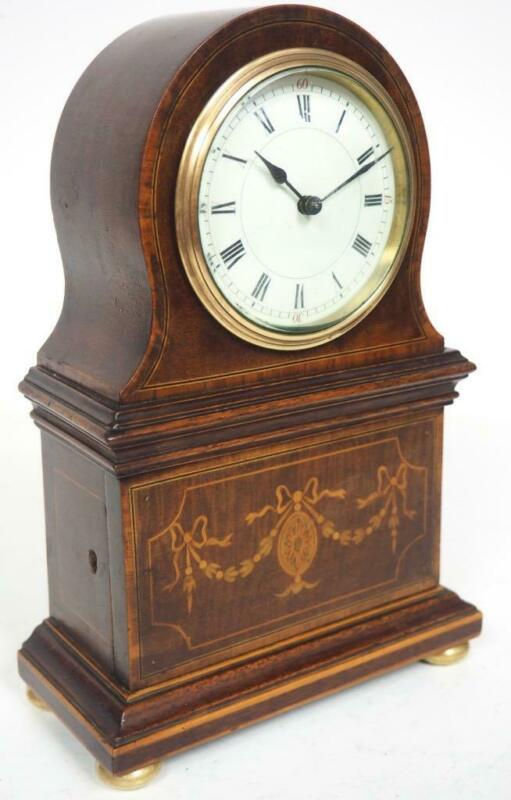
The variable release of energy is also a reason what some spring-driven mechanical clocks have what are called stop works or Geneva stops. Arrows showing Geneva stops or stop works The energy is released through the week and towards the end of the cycle the spring releases less energy and the clock slows down. You are actually moving a force through a distance by compressing the spring. Turning the key tightens the sturdy metal spring to store the energy.

In a spring-driven movement, the spring is spiral shaped and releases its energy through a set of gears. It is normal for an antique or vintage mechanical clock to lose a minute or so at the end of the week. You may notice that your 8-day spring-driven mechanical clock loses time near the end of its cycle. Similarly, you will find many antique and vintage clocks that are found in antique shops and offered for sale online are week running clocks. The majority of my clocks are 8-day clocks. Of that number three are 1-day ogee clocks, two run 14 days and the remainder are 8-day clocks.

Of the 80+ clocks in my collection 30 clocks are running at any given point in time.
#Antique 8 day mantel clock professional#
Servicing, according to professional clock repair people, means taking the movement out of its case, disassembling it, cleaning it, addressing wear issues, reassembly, oiling and testing. In fact applying oil may make it run better initially but the new oil combined with the old oil will accelerate wear on the pivots and bushings. The clock is either dirty or the movement is very worn and no amount of oil will make it run better. It may not stop immediately after its designed run time which means that a spring-driven 8-day clock that has been cleaned and serviced may run a day or two longer than its rated cycle.Īn 8-day clock that will not complete its rated cycle is sending a strong message that it requires servicing. It stops because the mainspring or weight can no longer supply the motive power for the clock to run. If you do not wind a clock near the end of its rated cycle the clock will eventually stop. Junghans 14-day time and strike mantel clock In each case the number of days refers to the period of time the clock will run until it requires winding. There are 14-day clocks, 15 day clocks, 60 day clocks and even anniversary clocks called 400-day clocks. Clocks such as those made with Chinese or Korean movements may have a run time of 31 days. Most ogee weight-driven clocks and alarm clocks are 1 day running.

A 30-hour clock is often called a 1-day clock. Mechanical clocks come in many varieties and may have different run times.


 0 kommentar(er)
0 kommentar(er)
